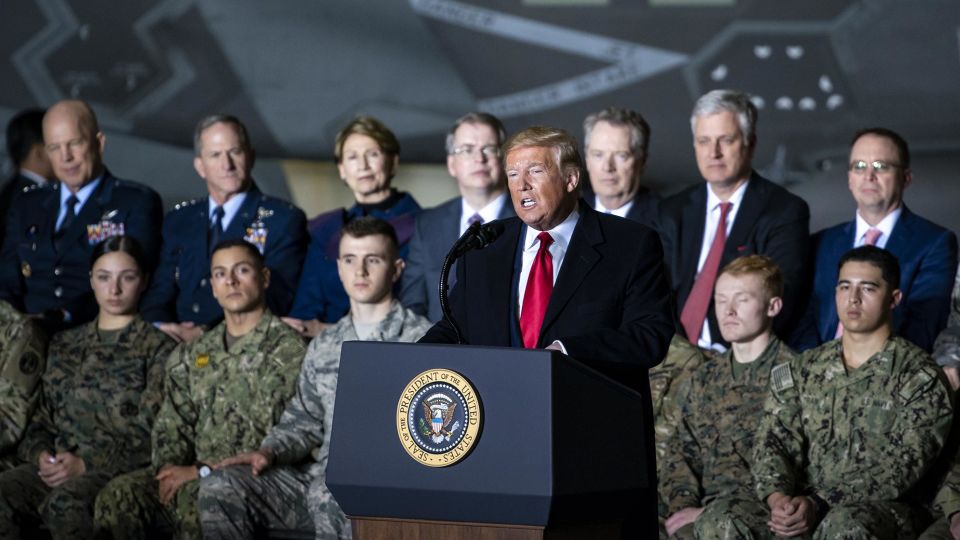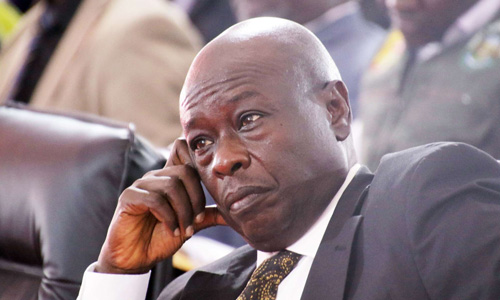(Washington, D.C.) – Pentagon officials are having informal discussions about how to respond if former President Donald Trump issues controversial orders to deploy active-duty troops domestically and dismiss large numbers of nonpartisan federal employees.
There are concerns about how the military and the Department of Defense (DoD) would react should Trump, if re-elected, attempt to use the military for domestic law enforcement or mass deportations, a concept he has suggested in the past. Trump has also indicated that he plans to replace government officials with loyalists, calling for a “cleaning out” of what he considers corrupt elements in the U.S. national security apparatus.
Trump’s last term was marked by a strained relationship with many military leaders, including former General Mark Milley, who took steps to prevent Trump from using nuclear weapons. Trump has also been critical of military leadership, labeling generals as “woke” and accusing them of ineffectiveness.
As a result, Pentagon officials are now preparing for a potential overhaul of the department, fearing that political appointees could enable Trump to bypass checks and balances. The situation is complicated by the question of how military leaders would respond to an unlawful order, with defense officials acknowledging the uncertainty.
“Troops are compelled by law to disobey unlawful orders,” said one defense official, adding that this could lead to resignations or conflict between military leaders and political appointees.
Officials are also concerned about the potential reinstatement of Schedule F, an executive order Trump signed in 2020 that reclassified large numbers of nonpolitical federal employees, making them easier to fire. This raises further concerns about the politicization of the federal workforce.
Defense Secretary Lloyd Austin has expressed confidence in the integrity of the military leadership, insisting that leaders will “do the right thing no matter what.” However, Pentagon officials are bracing for potential changes, including the reappointment of loyalists to key positions within the Department of Defense.
There are also concerns about how Trump’s military strategies would impact domestic security, particularly with the National Guard or active-duty troops potentially being deployed to handle protests or unrest. Trump has previously suggested that the military could be used to manage what he called “radical left lunatics.”
The Insurrection Act, which grants the president broad powers to deploy troops within the U.S. in cases of rebellion or unrest, could potentially be invoked. A former senior defense official speculated that Trump may seek to use military forces at the southern border or in American cities to support mass deportation efforts.
Another concern is the possible harm to the military’s readiness for foreign threats if additional active-duty forces are sent to support border operations. Still, some officials believe that military assistance may be necessary to address issues at a larger scale.
Pentagon officials are also worried about the possibility of political encroachment on the military. While the Posse Comitatus Act restricts the use of military forces for domestic law enforcement, it allows for exceptions in cases of rebellion or terrorism, giving the president considerable authority.
Trump’s remarks during the 2020 protests, where he suggested deploying the military to handle unrest, have only intensified concerns about the potential misuse of military power.
In the face of these challenges, military officials continue to plan for a range of possible scenarios. They are also preparing for potential changes to the federal workforce, including revising lists of employees who might be affected by the reinstatement of Schedule F. While protections for federal employees have been strengthened, there are still ways for the incoming administration to work around these measures.
Secretary Austin has warned about the risks of political abuse in the military, emphasizing the importance of maintaining the political neutrality of career civil servants. In a message to the military, he reassured personnel that they would only obey lawful orders, ensuring that the military remains committed to defending the Constitution and upholding the rights of U.S. citizens.




















